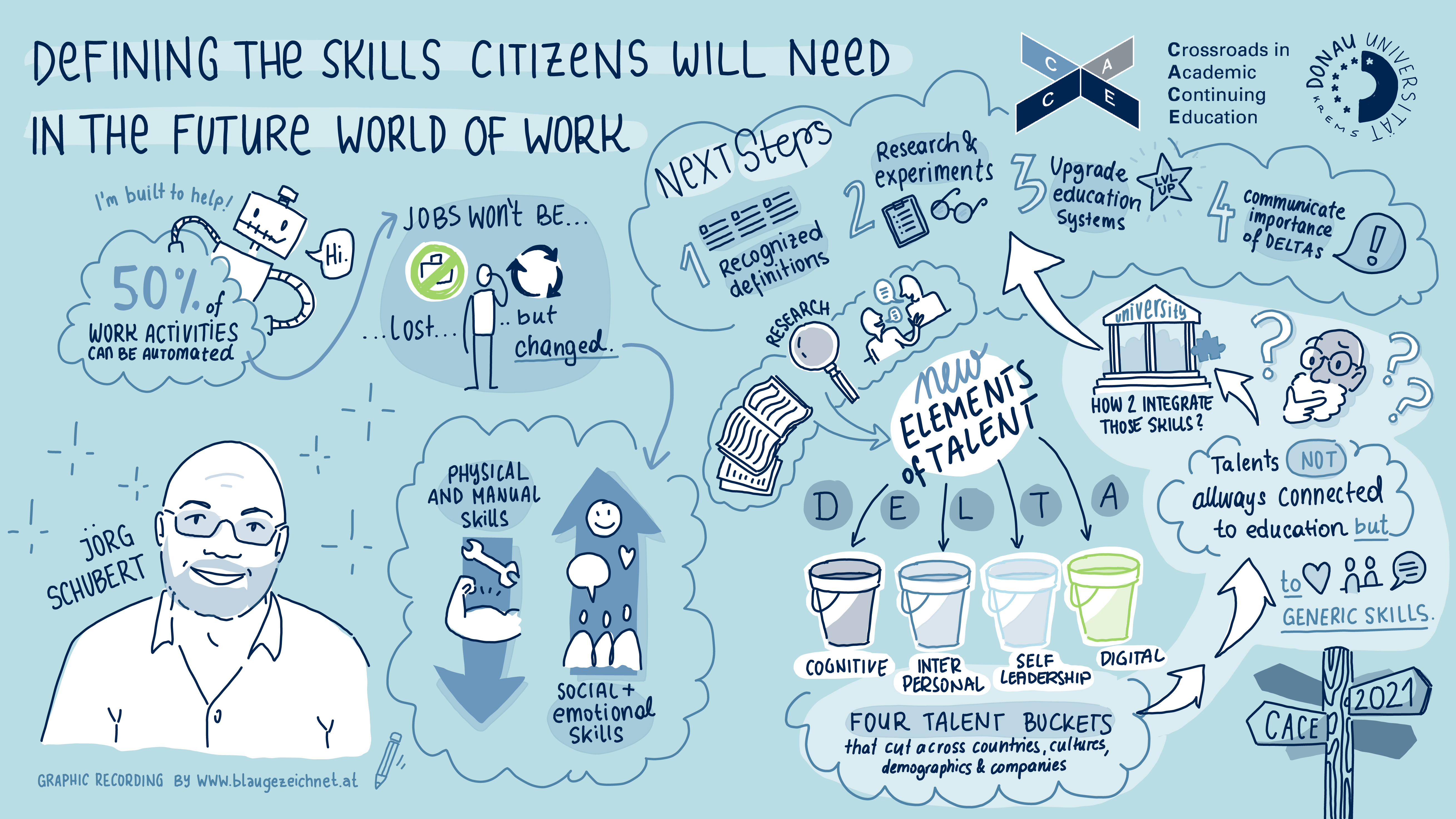blaugezeichnet.2024-09-13-08-29-00.jpg)
Digitisation and automation are rapidly transforming the world of work. Jobs are changing. New tasks are emerging, requiring people to learn new skills and competencies. But which skills and competencies will be in demand? What will be expected from workers in the future? Jörg Schubert, one of the partners at McKinsey Dubai, addressed these questions in his presentation.
Schubert showed that, theoretically, approximately 50 percent of today’s work activities would be automatable. This could boost productivity, but it also gives rise to challenges, as people have to be retrained. Schubert underlined that it is conceivable that approximately one third of workers in OECD countries will have to change occupation by 2030. Early adopters, both companies and states, which respond to new trends early on will profit to a much greater extent, while late adopters, according to the winner-takes-all principle, will suffer all the more serious disadvantages.
McKinsey has identified the sectors with a particularly high automation potential, as well as the automation potential of individual tasks. They found out that in only 1 percent of occupations are 100 percent of the tasks automatable, while for 60 percent of occupations 30 percent of tasks are automatable. As Schubert explained, this does not mean that these occupations are going to disappear, but they are going to change. He showed a chart to illustrate that manual skills will become less important in the course of the next decade, as will basic cognitive skills. By contrast, the importance of technological, social and emotional skills will grow.
Schubert and his colleagues covered this topic in greater detail in an article entitled Defining the skills citizens will need in the future world of work. They analysed relevant academic publications and cooperated with companies and education institutions to define 56 DELTAs, Distinct Elements of Talent, which will be in high demand in the future world of work. They assigned these DELTAs to four categories: cognitive, interpersonal, digital and self-leadership competencies.
Cognitive competencies, for example, include logical reasoning, problem solving or the ability to seek relevant information. Time management and communication competencies, such as storytelling, public speaking, asking the right questions and active listening, are further examples. Creativity and flexibility are also listed in this category. Interpersonal skills include empathy, the ability to motivate different personalities and the ability to resolve conflicts. Self-awareness and self-management, passion, achievement orientation and the ability to cope with uncertainty have been identified as self-leadership competencies. Data literacy was cited as an example of one of the most important digital skills.
After having compiled this list, Schubert and his team carried out a survey among 18,000 respondents from 15 countries to find out about their proficiency in these DELTAs and whether this proficiency was associated with professional success. The results of the online survey showed, among other things, that people holding a job had a higher proficiency in certain DELTAs than unemployed persons. For example, they were better able to adapt to new situations or cope with uncertainty. Schubert also explained that a higher proficiency in certain DELTAs correlated with a higher income. Respondents with a higher proficiency in certain DELTAs were also found to be more satisfied with their jobs. Schubert and his team also analysed the link between proficiency in certain DELTAs and the respondents’ level of education, which showed that certain DELTAs were not necessarily linked to education. Schubert concluded that the education system does not yet cover skills like creativity, empathy or the willingness to take risks.
At the end of his presentation, he underlined that a lot of research remained to be done in this field. Qualifications and competencies have to be better defined and classified, ideally in cooperation with education institutions. We also have to find out how we can teach people skills like creativity or resilience in order to integrate suitable education methods in curricula, training and continuing education. It is also essential to communicate how important these skills will be in the labour markets of the future.